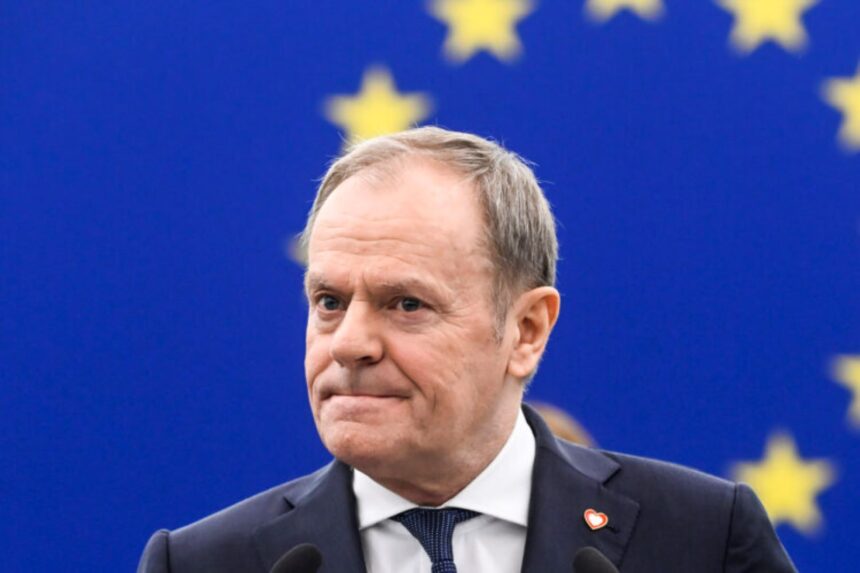Polish Prime Minister Donald Tusk has denied reports that a disturbing crisis in Serbia poses a threat to the safety of Poles in the country, clarifying that “it was not President Aleksandar Vučić, who rules Serbia, who fell, but the prime minister with a similar surname, and therefore, the government.”
“It doesn’t seem to me that such a political crisis could emerge in Belgrade at this moment that would jeopardize in any way the interests or safety of Polish citizens. Nothing at this moment suggests that. I have no alarming message for Poles in that region and don’t think there’s any need to cause unnecessary alarm,” Tusk told journalists in Warsaw.
Responding to a question from a journalist at the Polish public broadcaster TVP, regarding accusations from Serbian authorities and Russia that the student protests were a foreign-inspired colored revolution, and addressing his slip-up where he mistakenly said the government and Vučić had fallen, Tusk laughed and remarked that sometimes even mistakes have political meaning.
“The resignation was from the prime minister, not President Vučić, who rules Serbia. Though, lapses do have their significance in politics. The names are similar; the prime minister is Vučević. I met with both of them relatively recently, and based on my long-standing involvement in EU expansion activities, I don’t think such a political crisis could arise in Belgrade at this moment,” Tusk said.
The Polish prime minister also warned that there are enough crisis points in the world that don’t require new problems to be imagined or assumed.
“Let’s not force new issues. But we will certainly follow what’s happening,” Tusk added.
Polish media reporting on the protests in Serbia highlight that they are different from previous ones, as they are a decentralized act of civil disobedience without leaders. Students have been joined by citizens from various social groups, not only in Belgrade or large cities but also in smaller towns.
“Pro-government media are presenting the protests as if they were inspired by foreign instructors who are enemies of Serbia. They point fingers at Croatian agents. The police are becoming more aggressive toward the demonstrators, which only fuels anger in society. The government is trying to manipulate public opinion by announcing tactical concessions such as the resignation of several politicians and partial release of documentation. But this only has the opposite effect,” TVP reports.
The Polish public broadcaster also points out that frustration among Serbs is amplified by the fact that the EU views Vučić as a guarantor of stability in the Balkans.
“Fearing chaos in Serbia, the EU largely ignores the violation of democratic standards or the trampling of human rights. This only exacerbates the frustration among Serbs, who feel abandoned in their struggle against an authoritarian regime,” TVP concludes.







